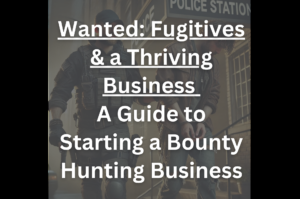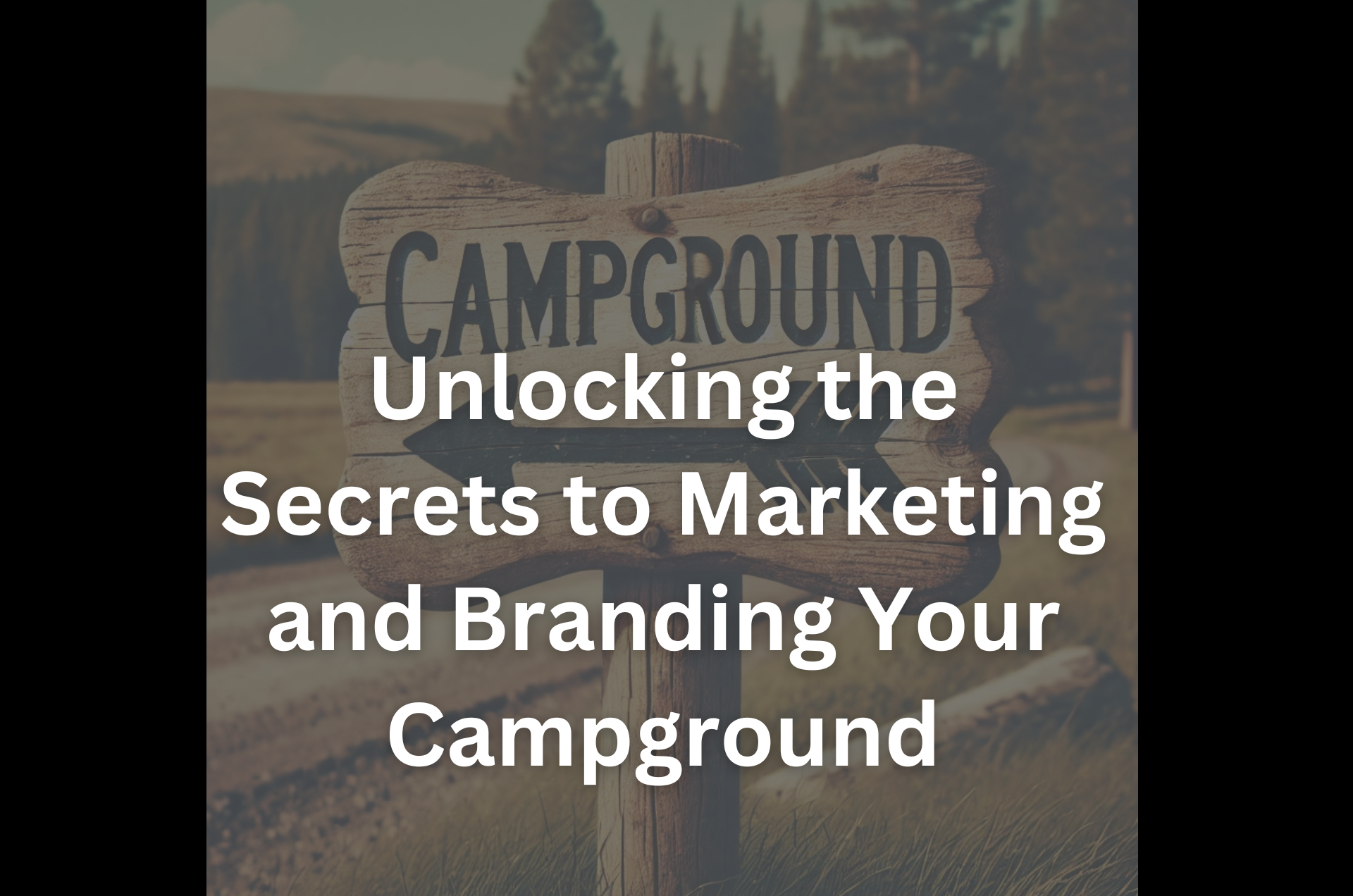**Disclosure:** We believe in honesty and transparency to the fullest extent. Some of the links on this blog are affiliate links, meaning, at no additional cost to you, we will earn a commission if you click through and make a purchase. This is one of the simplest ways you can support us.

Running a successful campground requires more than just providing a scenic location. In today’s digital-first world, your ability to market and brand effectively can make or break your business. Whether you’re nestled in the mountains or by a serene lake, the key to drawing in more campers lies in building a compelling brand and leveraging smart marketing strategies. Here’s how to unlock the secrets to marketing and branding your campground.
1. Crafting a Compelling Brand Identity and Online Presence
Your campground’s brand identity is more than just a logo or a name—it’s the feeling and experience that potential campers associate with your space. Creating a strong identity is essential to stand out and make your campground a destination of choice.
Define Your Brand: Start by identifying what makes your campground unique. Is it family-friendly with kid-oriented activities, or is it a retreat for outdoor adventurers? Defining your niche helps you connect with your ideal campers. Consider the emotions you want to evoke: is your campground a place for relaxation, adventure, or family bonding? Tailor your branding message to reflect these core experiences.
Design a Memorable Logo: Your logo should symbolize the essence of your campground—whether that’s rustic simplicity, eco-friendliness, or adventure. A simple yet memorable logo builds brand recognition, which is essential for repeat business and word-of-mouth referrals.
Create a Consistent Brand Voice: Your brand’s tone of voice should be consistent across all platforms—from your website to social media and email campaigns. If your campground caters to families, for example, maintain a friendly, fun, and approachable tone. Consistency builds trust and establishes a cohesive brand experience.
Use Impactful Visuals: Pictures speak louder than words, especially in the outdoor industry. High-quality, professional photos and videos showcasing your best campsites, amenities, and activities will captivate your audience. Feature drone footage or time-lapse videos of sunsets to showcase the natural beauty of your location.
Build a Stunning, User-Friendly Website: Your website is the digital front door to your campground. Make sure it’s designed to not only inform but also convert visitors into bookings. Highlight key features like accommodations, activities, and local attractions with eye-catching images and user-friendly navigation. Ensure the site is optimized for mobile devices since many campers book their trips on the go. A well-crafted website gives campers a taste of the experience they’ll enjoy.
Tell Your Brand Story: Every campground has a story. Whether it’s how your family started the campground or your commitment to preserving nature, storytelling humanizes your brand and fosters a deeper connection with potential visitors. A compelling brand story can differentiate your campground from competitors and create long-lasting loyalty.
2. Implementing Effective Marketing Strategies to Attract Campers
Marketing goes beyond branding—it’s about continuously attracting new visitors while engaging with your existing customer base. Here are proven strategies to get more campers through your gates.
Leverage Social Media: Social media platforms like Instagram, Facebook, and Pinterest are ideal for promoting your campground. Regularly post stunning images of sunsets, happy campers, or nearby trails. Use Instagram Stories to offer behind-the-scenes looks at campground life, share camper testimonials, and announce upcoming events or promotions. Engage with your audience by responding to comments and messages, and consider running paid ad campaigns to target specific demographics like adventure travelers or families.
Utilize Content Marketing: Creating valuable content for your campers positions your campground as an authority. Launch a blog or YouTube channel to share tips on camping, outdoor cooking, wildlife spotting, or local attractions. For example, an article titled “Top 10 Hiking Trails Near [Your Campground]” can attract adventure seekers, while a video on “Family-Friendly Camping Tips” can appeal to parents planning a trip. Not only does this content build trust, but it also boosts your SEO, helping your campground show up in search results.
Partner with Local Businesses and Influencers: Collaborate with nearby businesses like adventure parks, local eateries, or tour companies to offer exclusive deals for your guests. These partnerships can boost your brand’s visibility and appeal. Influencer marketing is another powerful tool—invite outdoor influencers or travel bloggers to visit your campground in exchange for posts and reviews. Their social proof can introduce your brand to a much larger audience.
Email Marketing for Repeat Bookings: Don’t overlook the power of email marketing. Regular newsletters with exclusive offers, event announcements, or updates about new features at your campground can keep past campers engaged and encourage repeat bookings. A well-crafted email campaign can nurture relationships and foster loyalty.
3. Managing Online Reviews and Leveraging Customer Feedback
Online reviews are gold in the campground industry. Potential campers often rely on platforms like TripAdvisor, Google, and Yelp to make booking decisions. Managing these reviews can be one of the most effective ways to build trust and credibility.
Encourage Positive Reviews: After a camper’s stay, send a follow-up email thanking them and encouraging them to leave a review. Offer incentives like discounts on future stays to increase participation. The more positive reviews you have, the more attractive your campground will appear to new campers.
Handle Negative Reviews Gracefully: Negative reviews can happen, but they can also be a chance to showcase your excellent customer service. Respond to criticism professionally, offering to correct any issues. Publicly addressing concerns demonstrates that you value your campers and are committed to improving.
Leverage Feedback for Growth: Use the feedback you receive in reviews to make meaningful improvements. Whether it’s adding more amenities, improving customer service, or updating the website, showing that you take feedback seriously will enhance the overall experience for future guests.
Conclusion
Effectively marketing and branding your campground takes time and effort, but the rewards are well worth it. By creating a strong brand identity, using smart marketing strategies, and consistently managing your online presence, you can build a thriving campground business. With a compelling brand and a dedication to providing excellent service, you’ll attract more campers and ensure they leave with memories that last a lifetime.










